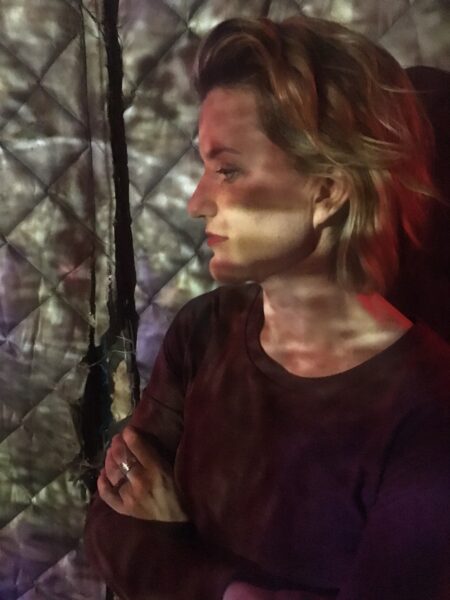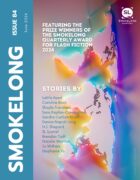Food and tradition play such a central role in this story. Why did you choose to frame the story around the dish ambrosia?
The whole piece for me was an experiment in trying to remember a child’s way of seeing and experiencing the world. Memory for me, like most of us, often spins around a scent or a sound or a comment or a gesture, and then the rest of the picture is fleshed out from there. In writing this story, I was interested in something insignificant, like a dish, being the thing that brings memory back to something momentous, like a death.
There’s an unreliability to this narrator, a sense that memory can be blurry and yet some of the details are so vivid. How did you balance the unreliability of memories with specific details and what do you want the reader to take away from that approach?
I wasn’t so much interested in memory being blurry or unreliable, as being spotty. For this piece, I wanted to put down on paper the bare bones of an event—what someone was wearing, what the room smelled like, what the raw emotions were. This character remembers the excitement of a favorite dessert, an expression of love, as well as feelings of embarrassment, perhaps even shame, as well as fear. I wasn’t interested in judging any of it, just looking at it as plainly as possible.
The narrator has such a longing for love and connection in the midst of grief, yet the story has such a sense of whimsy and surprise. How do you approach writing about universal themes in such a surprising way?
In my experience, moments in life that really shift your plane of existence, like a death, or a birth, or a grave mistake, come with surprising emotions. I think there are a lot of cultural narratives around what someone should feel in a given moment. Joy at a birth for instance. But what else is there? What are the things that we don’t acknowledge? I think the heart and the brain almost misfire under intense circumstances and you find yourself feeling or noticing or acting in ways that seem incongruous with the moment. That’s what interests me. That’s what makes experience complex.
You use smell to layer in story and character so well. I love the contrast of “pipe tobacco and spilled motor oil and candied peanuts. Wet canvas.” What advice do you have about using sensory details and contrasting the unexpected?
I don’t know if I have advice, per se, other than being observant. I could have written that the room smelled “musty,” but that doesn’t really do it justice. Writing that the room smelled like pipe tobacco and spilled motor oil, candied peanuts, wet canvas, gives you a sense of the man—his work, his vices, his time by himself, his failed projects, perhaps. It’s a much lonelier description, to my mind. It also serves to take the narrator and the reader out of the moment to yet another memory, another family member.
I really love the ending of this piece where the narrator is smiling but it’s almost like a mask. How did the ending evolve and why did you choose to end on that image?
This was another way of exploring and trying to remember what a child’s mind and emotional life are like. Hard to do. Fear is so tremendous when we are young, and it can be expressed in strange ways, just like joy. I wanted to capture how disturbing it is to see a parent in pain when you’re young. To see a beloved parent grieving. I think that hits a powerful nerve with a child and gives you your first sense that things can and will go wrong. And when you’re young you really have no idea what to do with that. I wanted to experiment with all the ways that fear could be unexpectedly expressed.



 The core workshop of SmokeLong Fitness is all in writing, so you can take part from anywhere at anytime. We are excited about creating a supportive, consistent and structured environment for flash writers to work on their craft in a community. We are thrilled and proud to say that our workshop participants have won, placed, or been listed in every major flash competition. Community works.
The core workshop of SmokeLong Fitness is all in writing, so you can take part from anywhere at anytime. We are excited about creating a supportive, consistent and structured environment for flash writers to work on their craft in a community. We are thrilled and proud to say that our workshop participants have won, placed, or been listed in every major flash competition. Community works.